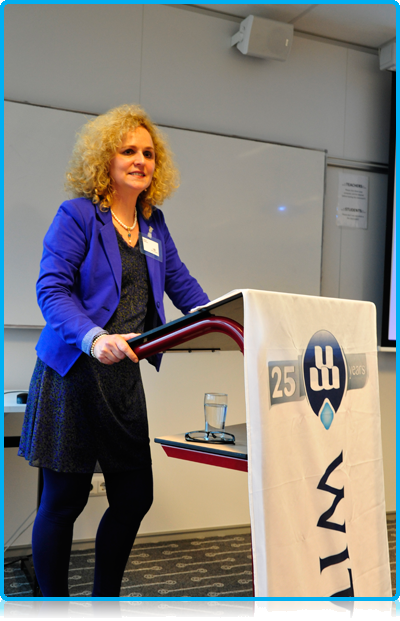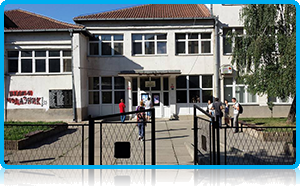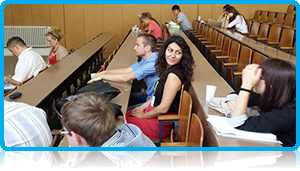Dr Saskia Harkema: Teaching in Kosovo, a post-conflict area in Eastern-Europe

This summer I had the opportunity to work as a Visiting Professor in Kosovo, a small country with a rich history and the stage of heavy political discussions. The political status of Kosovo is the subject of a long-running political and territorial dispute between the Serbian (and previously, the Yugoslav) government and Kosovo's largely ethnic-Albanian population, stemming from the breakup of Yugoslavia at the end of the 20th century, and the ensuing Yugoslav wars. In 1999 the administration of the province was handed on an interim basis to the United Nations under the terms of UNSCR 1244 which ended the Kosovo conflict of that year.

That resolution reaffirmed the sovereignty of Serbia over Kosovo but required the UN administration to promote the establishment of 'substantial autonomy and self-government' for Kosovo pending a 'final settlement' for negotiation between the parties. At present the status of Kosovo as a nation is still being disputed by some EU members like Spain and Belgium. Its future remains undecided about. I was located in Mitrovica, a town in the north of Kosovo, near the Serbian border. The purpose of my visit was to teach at a Summer University which is held yearly at the University of Mitrovica. This initiative is sponsored by SPARK – a Dutch NGO. SPARK develops higher education and entrepreneurship to empower young, ambitious people to lead their conflict affected societies into prosperity. A lack of higher education is a key obstacle in challenging the success of post-conflict countries. With intent to improve relations among students and academic staff from universities in Europe, in particular South Eastern Europe, the Mitrovica Summer University serves as a platform for international cooperation.
Bringing together academics and students from 18 countries worldwide, for a two week, six-course programme, the weeks are filled with lectures, debates, workshops and guest lectures as well as social gatherings like dancing and movie nights. I taught the subject Entrepreneurship – from basics to innovation, in cooperation with a local Professor who lives in the area and originally comes from Bosnia-Herzegovina. Tensions in the area can still run high which is illustrated by the fact that the bridge that links the north of the city with its southern part, was destroyed during the war and later again in 2004, after which it was rebuilt by the French. Mitrovica has been in the international headlines since 1999 as Kosovo’s most difficult trouble spot. The bridge has become the symbol of the town’s division among Serbians who live in the north and Albanians who live in the south. At present the bridge is guarded by the military and blocked by rubble, stones and a heap of sand that hinder the passage over the bridge. Though tourists can cross the bridge without a problem, Serbians and Albanians will never do so. The division between the two ethnic groups is illustrated by the fact that Serbians and Albanians have different number plates. Serbians refuse to adopt the Albanian number plates and vice versa and it is not uncommon to see cars without number plates at all for that reason. A Serbian crossing the bridge because he is for instance he is a taxi driver has 2 sets of number plates in his car: a Serbian plate and an Albanian one.
Mitrovica has been in the international headlines since 1999 as Kosovo’s most difficult trouble spot. The bridge has become the symbol of the town’s division among Serbians who live in the north and Albanians who live in the south. At present the bridge is guarded by the military and blocked by rubble, stones and a heap of sand that hinder the passage over the bridge. Though tourists can cross the bridge without a problem, Serbians and Albanians will never do so. The division between the two ethnic groups is illustrated by the fact that Serbians and Albanians have different number plates. Serbians refuse to adopt the Albanian number plates and vice versa and it is not uncommon to see cars without number plates at all for that reason. A Serbian crossing the bridge because he is for instance he is a taxi driver has 2 sets of number plates in his car: a Serbian plate and an Albanian one.
The students that participated in the Summer University came from all over the world. This diversity created an atmosphere of intercultural exchange and discussion which was unique. It showed that the Eastern part of Europe is a completely different setting from the Western part. The eagerness, motivation and dedication of students spurred creativity and a fantastic interchange of ideas. Next year I hope to be part of the team again since it will be the last time the Summer University is held. Despite the tensions, SPARK is the only NGO that is accepted by both Albanians and Serbians, given their goal to ignite entrepreneurship as a means to create a future for the youth in this area.
WUP 03/10/2013
by Saskia Harkema
©WUAS Press